The Northern Weekly Salvo
Incorporating Slaithwaite Review of Books, Weekly Notices, Sectional Appendices, Tunnel Gazers’ Gazette etc. Descendant of Teddy Ashton’s Northern Weekly and Th’Bowtun Loominary
Published at 109 Harpers Lane Bolton BL1 6HU email: paul.salveson@myphone.coop
Publications website: www.lancashireloominary.co.uk
No. 301 February 16th 2022
Salveson’s half-nakedly political digest of railways, tripe and secessionist nonsense from Up North. Sometimes weekly, usually not; definitely Northern.
General gossips
Welcome to the first Salvo of 2022 (tekken thi long enough). Well, I thought I’d have a bit of a rest after reaching the 300th issue. It gave me time to think about the future shape and size of The Salvo and the conclusion I reached was pretty much ‘leave it as it is’. So, unless anyone has any wonderful ideas, that’s pretty much what I’ll do. Part of me is outraged by my conservatism, maybe it’s just getting old.
There’s all sorts of things goin’ on that deserve some comment. War in Ukraine? Can’t see it somehow and I think Biden and Johnson would be well advised to shut up. They’re making a bad situation worse; sending the geographically challenged Liz Truss doesn’t help.
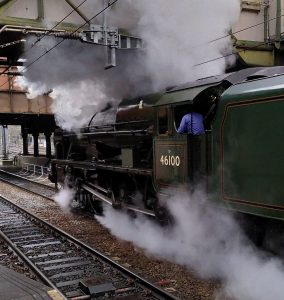
Will Johnson depart? Probably not, at least until after the May elections. If the Tories do really badly, then maybe. And as for Cressida Dick – for the best comment I’ve seen so far, look up Libby Purves in The Times, February 14th (‘Cressida Dick deserved better than this exit’). Always more to these things than meets the eye and her assessment sounds right. She ends with the comment “if she had been allowed to get on with her reforms for a couple of years it would have been to our benefit. Instead of which an ineffective mayor dismays and demoralises the Met to make himself look strong.”
This issue has my thoughts on ‘Levelling-up’ as well as ‘railways and literature’, women dialect writers and Lord Leverhulme. I even stray into deepest Yorkshire. So you can’t say I’m not being inclusive. Well, I suppose you can.
Do we want to be ‘levelled-up’?
Michael Gove’s weighty ‘Levelling-up’ white paper has been met with predictable scorn. It’s certainly long, and actually reads well – but lacks substance and real commitments to invest, repeating promises of ‘jam tomorrow’ that have already been made, such as The Integrated Rail Plan, covered in the last Salvo.
Jennifer Williams, in The Manchester Evening News, offers a good review of the document. She makes the point: “A new phrase is seeking to

define the political lexicon of the 2020s. ‘Levelling up’ is now everywhere and nowhere. It is everywhere, in that it is mentioned at every opportunity by the Prime Minister and his cabinet, repeated back by headlines, academics and think-tanks; it is nowhere, in that nobody yet knows what it means in practice.”
She continues: “Narrowing the regional divide is firmly on the agenda, post-electoral landslide. For years, many in this neck of the woods have been making arguments that are now becoming mainstream, as the political imperative turns towards holding seats not previously lavished with attention. So far, Number 10 has certainly been strong on transport and the need to improve infrastructure. Yet…..the issues underlying this debate are far more complex and structural than that, having been exacerbated by a decade of unequal austerity. It will require imagination, compassion, determination and getting out of Westminster to rebalance the inequality between north and south, as well as rich and poor.”
The White Paper runs to a total length of 332 pages, including the Executive Summary. If you measured the usefulness of Government
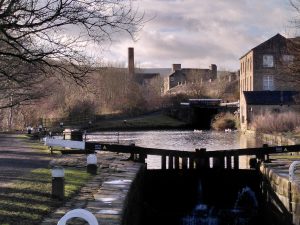
reports by volume, it would certainly be up there as a winner. Yet various commentators have pointed out the lack of real commitment, some comparing the huge investment poured into eastern Germany post-unification. It’s full of good intentions; there’s much useful evidence on regional disparities. It presents ten ‘missions’, or promises to get things done. But how much is wishful thinking? It tells us that ‘levelling-up’ means:
- boosting productivity, pay, jobs and living standards by growing the private sector, especially in those places where they are lagging
- spreading opportunities and improving public services, especially in those places where they are weakest
- restoring a sense of community, local pride and belonging, especially in those places where they have been lost, and
- empowering local leaders and communities, especially in those places lacking local agency
The white paper highlights the Italian renaissance where city states “combined innovation in finance with technological breakthroughs, the cultivation of learning, ground-breaking artistic endeavour, a beautiful built environment and strong civic leadership,” which is all very nice.
But coming back down to hard reality, what does it mean for places like

Bolton – a classic so-called ‘Left Behind’ town, with ‘red wall’ constituencies that turned blue, in which even many of its residents seem to glory in its accolade as one of the country’s ‘crap towns’, if social media is much to go by.
The town, and many others like it, has been the victim of three disasters. The first was the Thatcher years which saw the collapse of its core industries, cotton and engineering compounded by imposition of stringent cuts in local government spending and privatisation of services. Secondly, the town had a lacklustre Labour administration that was overwhelmed by the challenges it faced with little strategic vision and an assumption among senior councillors that their seats were safe. The third disaster was the election of a Tory Government in 2010 committed to further austerity. The cumulative effect on a once-prosperous town was catastrophic, with the loss of well-paid (and unionised) jobs, a town centre full of empty shops and ‘pound stores’, and the usual panoply of anti-social behaviour, drug-related crime and the rest. The creation of out-of-town shopping centres was yet another nail in the town’s coffin.
So what should ‘levelling-up’ mean to towns like Bolton? To be honest, I hate the term. It suggests that we all aspire to be like Slough, Basingstoke or Crawley: car-dominated, alienated suburbs. Actually, many people in Bolton want to be more like their image of how it used

to be, with a flourishing town centre, locally-based jobs and a council that had real power to do things. They resented being coerced into ‘Greater Manchester’ and remain proud to be ‘Lancastrian’. In turn, the smaller satellite towns such as Farnworth and Horwich don’t like being lumped into a monolithic local authority, foisted on them in 1974 without so much as a by your leave.
So the third objective (above) of ‘restoring a sense of community, pride and belonging’ isn’t something that Westminster can impose. In fact, it’s already there (in a sulk) but needs the powers and resources to do things which the fourth objective promises, of ‘empowering local leaders and communities’.
Somehow, I can’t see that happening under the present administration, and as yet there’s not much sign of it being done under one led by Keir Starmer, though Lisa Nandy seems to be getting into her new role as Gove’s oppo. Let’s see.
(this is based on my latest piece for my regular column ‘Points and Crossings’ in Chartist magazine see www.chartist.org.uk)
Messroom poets and brake van philosophers
I recently gave a talk for Horwich Heritage on ‘railway workers’ culture’. It covered a lot of ground and gave me the nudge to re-visit a paper I wrote back in 2004 called ‘Messroom poets and brake-van philosophers’, about railway art and literature in Britain. It was partly inspired by my time as a guard at Blackburn in the 1970s. I have very fond memories of the people I worked with, some of whom had a degree of cultural awareness I’ve not come across since, in academia,
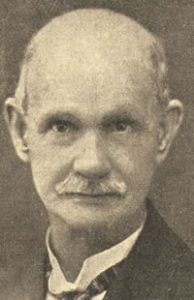
government, or railway management. This isn’t hero worship. The messroom didn’t resound to debates on Kantian metaphysics, nor the leading role of the proletariat in the socialist revolution (though I do recall a heated discussion on the merits of Beethoven versus Mozart!). But quite a few of the men were very well-read, some were skilled musicians, and lots had a real interest in the wider cultural world around them. Hardly any had a ‘formal’ education, and I can remember Sid Townsend (ex-Rose Grove, ‘Long Sid’) fulminating against the narrowness of modern university education, typified by a management trainee doing a stint as train crew supervisor. ‘He knows all abeawt ancient Greek history, but bugger all abeawt owt else’. Damned forever. Jack Bradley, ex-Lower Darwen driver, noted for his flat cap which was possibly older than himself, was a crossword expert. I don’t mean the Mirror ‘quick crossword’ but the Times, Telegraph and Guardian species.
The full version is here: http://lancashireloominary.co.uk/index.html/railway-workers-culture
Lord Leverhulme: saint or sinner?
William Hesketh Lever – later to become Baron Leverhulme of Bolton-le-Moors – is one of the most important figures in Lancashire’s history. There is no doubt that he was a great benefactor to Bolton and a pioneer of good quality ‘social housing’, the six-hour working day, pensions and a strong believer in women’s equality. But there was a dark side to him, most obviously in his company’s activities in the Belgian Congo, but also his attempt to eradicate the way of life of the crofting people on Lewis and Harris. His defenders would say this was done with the best of intentions, but we all know where those can lead us!
In recent years students at Bolton School have researched the story of Lever, who was a major benefactor of the School, in the light of the ‘Black Lives Matter’ movement. Lever wasn’t a slaver, but he was complicit in forced labour. Let’s have a look at his record.
He was born at 16 Wood Street, Bolton, in 1851. The fine Georgian building remains and has been home to Bolton Socialist Club since 1905, ironic in view of Lever’s life-long Liberal beliefs. He inherited the parental Nonconformity and was a member of Bolton Congregational Church. He went into the family grocery business and quickly excelled as a businessman and marketeer, expanding the family business to Wigan and elsewhere. He developed the ‘Sunlight’ brand of soap which became a household name. Its fame spread from Bolton to the whole of the British Empire. It made him enormously rich. He developed his own ‘garden city’ on the banks of the Mersey, which he called ‘Port Sunlight’. It was a model community with good quality housing and social and educational facilities for his workers and their families.
There was a price to pay if you were one of Lever’s employees. The secretary of the Bolton Engineers’ Union wrote to him saying “no man of an independent turn of mind can breathe for long the atmosphere of Port Sunlight…the profit-sharing system not only enslaves and degrade the workers, it tends to make them servile and sycophant, it lowers them to the level of machines tending machines.”
There is no doubt that Lever expected complete subservience from his workforce, though he did accept trades unions in his factories. One union negotiator described him as a ‘martinet’ while other colleagues quickly realised that there was only one right way of doing things – his way.
This inability to compromise was to cost him dearly, with his ill-conceived plans to transform the Hebridean islands of Harris and Lewis into modern industrial communities, dragging the crofting people out of poverty and providing them with good housing and sanitation. He purchased the two islands in 1918 and set about his ambitious plans with gusto. The only problem was that the crofters were quite happy with their traditional way of life, and just wanted to own their own small plots of land – to which they resorted to guerrilla tactics to achieve. Within five years his plans were in tatters and the huge investment was wasted. The irony was that if Lever had listened to what the islanders were asking, his own ambitions could probably have been reconciled with theirs.
Lever’s role in the Belgian Congo and Solomon Islands was even more problematic, where the same tendency to exert total control – even if it was for your own good, as he would have seen it – caused him to become embroiled in the use of forced labour to coerce African workers to produce the palm oil essential for his soap manufacturing process. The coercion involved violence and imprisonment of workers and their families, leading to questions being asked in the Belgian Parliament, which had initially welcomed Lever’s investment.
At home, Lever – Baron Leverhulme of Bolton-le-Moors from 1917 – never lost his links with Bolton. He was elected mayor of the town in 1918 and a few years earlier produced a remarkable vision for ‘Bolton as it is and as it might be’, crafted by the landscape architect Thomas Mawson. Most of his ideas never saw the light of day, but what did was his lasting legacy to the people of Bolton: the Rivington Estate and Lever Park. He saved historic Hall i’th’Wood from decay and probable destruction and gifted it to the people of Bolton. He died in 1925 and in his will provided for the establishment of the Leverhulme Trust, which continues to support a vast range of research and educational projects.
William Lever: saint or sinner? Let history judge.
(based on a feature published recently in The Bolton News ‘Looking Back pages)
Margaret, Hannah, Sarah and Ethel
I recently gave a talk to the Rochdale-based Edwin Waugh Dialect Society, on ‘Women Dialect Writers of Lancashire’. It was good to revisit some of the work I did for my PhD back in the 1980s. Since then, the work of Ethel Carnie (not really a dialect writer as such) has become more well-known with some of her work re-published. There are others whose work really needs to be brought back to light. Perhaps foremost is Margaret Rebecca Lahee, who features on the Lancashire Dialect Writers’ Memorial in Rochdale. She was born in Ireland and settled in Rochdale in 1831.
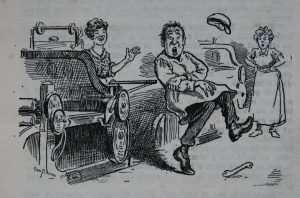
She befriended Susannah Rothwell Wild and they became lifelong companions. Lahee clearly had an acute ear for local dialect and her first attempt proved highly popular – Neddy Fitton’s Visit to Th’Earl o’Derby was published in 1851. She was involved in local radical politics and wrote a remarkable biography of local Chartist leader Tom Livsey, which features Tom’s speeches using Rochdale dialect. Her most outstanding achievement was her novel Sybil West, written in the late 1880s and published in serial form. It came out as a book in 1893 and is about women workers in Rochdale’s weaving sheds. It richly deserves a re-print. Other important women writes of the 20th century include Hannah Mitchell, whose dialect sketches were published in Labour’s Northern Voice, published by the ILP. They put across simple political messages in an accessible dialect. Allen Clarke supported the women’s suffrage cause and did much to encourage women writing for his Northern Weekly. Sarah Robinson worked as a weaver in Padiham and wrote for the local Burnley newspapers as well as Northern Weekly. Most of her poetry was in standard English and feature everyday life in the weaving sheds of East Lancashire. Mention should also be made of Mary Thomason who was active in the co-operative movement in Leigh; many of her poems were first published in The Leigh Co-operative Record. A collection of her poems – Warp and Weft – was published posthumously in 1938.
Beautiful Barnsley
Just in case you think this Salvo is too heavily weighted towards the shire of the red rose, here’s a bit fro’ Yorkshire. Barnsley to be precise, a place I have cause to visit quite a bit at the moment. Compared to many ex-industrial Northern towns, it’s looking pretty good. The town centre has had a lot of work done to it, with much of the 1970s grot swept away. There’s some recently-installed public art which celebrates the people of Barnsley, including NHS workers. I really like what’s been  done with the Market Kitchen – a large open eating space with lots of food outlets – ranging from your traditional hearty Barnsley fare to Thai, Greek, Indian and more. Up the hill, past the splendid town hall (now home to Experiencing Barnsley local history museum) is The Cooper Gallery which has lots of good material and a nice cafe (where I once met Dickie Bird, who is celebrated in a nearby statue, even though he’s still alive).
done with the Market Kitchen – a large open eating space with lots of food outlets – ranging from your traditional hearty Barnsley fare to Thai, Greek, Indian and more. Up the hill, past the splendid town hall (now home to Experiencing Barnsley local history museum) is The Cooper Gallery which has lots of good material and a nice cafe (where I once met Dickie Bird, who is celebrated in a nearby statue, even though he’s still alive).
There’s lots of interesting places within easy reach (bus or train) from Barnsley, including Elsecar Heritage Centre. The steam railway doesn’t seem to be operating, hopefully a temporary lull, but there’s plenty 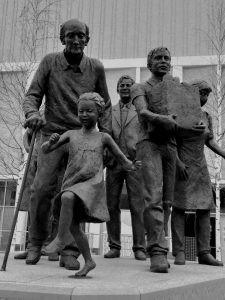 other things to interest the visitor. The Heritage Centre website says that following the surrender of the lease by the trustees of Elsecar Heritage Railway in August 2020, combined with the Pandemic, the future of the railway is under review and a consultation process will start very shortly. Let’s hope the railway will return, it’s an important part of what the heritage centre offers.
other things to interest the visitor. The Heritage Centre website says that following the surrender of the lease by the trustees of Elsecar Heritage Railway in August 2020, combined with the Pandemic, the future of the railway is under review and a consultation process will start very shortly. Let’s hope the railway will return, it’s an important part of what the heritage centre offers.
Elsecar itself is a fascinating community with historic workers’ cottages – including ‘Reform Row’ of 1837. A few miles away is Darfield, notable as home of Barnsley Bard Ian McMillan but also location of the Maurice Dobson Museum and Heritage Centre. It’s an excellent local museum with friendly and welcoming volunteers, and a tearoom serving excellent home-made cakes. Maurice himself was a fascinating
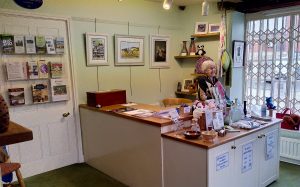
character. Ian McMillan in Real Barnsley describes him as a gay cross-dressing ex-marine, or maybe Scots Guardsman. Somebody you wouldn’t want to cross, dress or otherwise. The building that’s now the museum is where he lived with his chap, Fred, for many years. Check opening times – currently it’s Wednesday and Saturdays, with bacon butties on the first Saturday of each month.
Short Salvoes
- The latest edition of the BBC Music magazine has an interesting piece by Julia Winterson on railways and music (‘Trains of Thought’). It includes Honegger’s ‘Pacific 231’, as you’d expect – with a rare photo of him cabbing an A3. Herbert Howells ‘A Spotless Rose’ was apaprently rail-inspired. Plenty more too, she doesn’t always get it quite right (Buttermere never had a station) but a good piece. Her book ‘Railways and Music’ is published by University of Huddersfield Press.
- You wait ages (a year!) for an AGM then two come along at once. Bolton Station Community Partnership and SE Lancs CRP held their annual gatherings on February 15th. All very positively post-Covid. It was agreed at the CRP to include The Atherton Line (all the way to Kirkby!) under its wing.
- Great to listen to a real, live concert! Bolton Choral Union (est. 1887) was in good form for Saturday’s concert of songs from West End shows. Packed crowd in the St Andrews/George’s URC church
- Sad to see that The Boggart Bridge at Towneley Hall is currently CLOSED owing to a partuial collapse. There are no reports of boggart injuries.
Lancashire Loominary publications : Winter Sale for readers
- ALLEN CLARKE: Lancashire’s Romantic Radical £9.99 (normally £18.99)
- Moorlands, Memories and Reflections £12.50 (£21.00)
- The Works (novel set in Horwich Loco Works) £6 (£12.99)
- With Walt Whitman in Bolton £6 (9.99)
See www.lancashireloominary.co.uk for full details of the books (ignore the prices shown and use the above – add total of £4 per order for post and packing in UK)
North-West Book Fairs
Gargrave Village Hall, West Street, Gargrave BD23 3RD on Saturday 5th March, 10am – 4pm. Around 18 dealers, excellent home-made refreshments and free parking.
The PBFA will be at Derwent & Calder Rooms, Pavilions of Harrogate, Great Yorkshire Showground, Harrogate, HG2 8NZ on Friday 11th (11am – 5pm) and Saturday 12th (10am – 4pm) March. Around 40 dealers, with light refreshments in the café.
Saturday 19th Marc: Barton Village Hall PR3 5AA (on the A6 north of Preston), 10am – 4pm. Around 15 dealers, café serving excellent home-made food and a large free car park.
This year Easter Saturday falls on 16th April, which means we will be at the Civic Hall, Calder Avenue, Longridge PR3 3HJ on that date. Around 15 dealers, free parking and an excellent café.
Clapham Book Fair will be on Sunday 24th April in the Village Hall, Clapham LA2 8DZ, 10am – 4pm. Around eight dealers, free parking and café serving home-made food.
On Saturday 30th April we will be at the People’s Hall, Howgill Lane, Sedbergh LA10 5DQ, 10am – 4pm. Around 10 stalls, with a café serving home-made refreshments. There is a small free car park at the hall, but it may be necessary to park in the pay and display in Joss Lane and walk up. As well as the Fair there are a number of bookshops so why not make a day of it in England’s Book Town?
On Bank Holiday Monday 2nd May we will be in the Victoria Hall, Settle BD24 9DZ. Around 12 dealers and excellent home-made food. Parking is in the nearby car park.
On Sunday 22nd May there will be a book fair at Gorton Monastery, Gorton Lane, Manchester M12 5WF, 11am – 4pm
Brian Taylor
I’m very sorry to report the news that Brian Taylor passed away, peacefully, a couple of weeks ago. He was an active member of Bolton Station Partnership and had extensive interests. I first knew Brian when he was clerk to Greater Manchester Passenger Transport Authority back in the 1980s. He was always full of cheer with a ready wit. Condolences to Pat. There will be a tribute evening to Brian on Wednesday March 16th at Bolton Station Community Room (Platform 5). Nigel Valentine will show a selection of his superb steam photos, which Brian would have loved. All welcome.
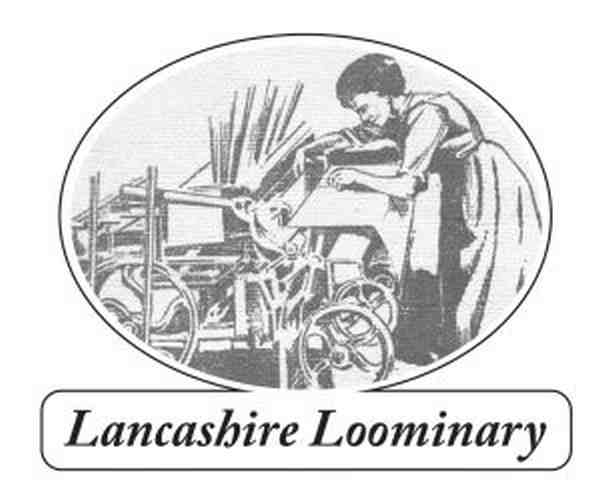
6 replies on “Northern Weekly Salvo 301”
You mentioned Darfield which reminded me that Ebenezer Elliott is buried in the Churchyard of All Saints Darfield. Given your admiration for radicalism I’m surprised you missed the final resting place of the “Corn Law Rhymer”!
PS I was at school with Ian Macmillan, but I left for a life of much greater excitement!
Yes, thanks Steve I’m aware of that but time didn’t permit a visit – when (not if) I go back I will go and see it, paying due homage. cheers Paul
Great little article on Barnsley and Elsecar – what you neglected to write was that a lovely ride on the Penistone Line takes you to both!
Just a couple of points re
Alexander Boris de Pfeffel Johnson (his real name folks – honest!). Shocking as it is I don’t think he’ll go unless there is a total Tory collapse in the May elections. Handing out questionnaires is hardly policing, more like allowing the suspects to mark their own homework.
Cressida Dick – as a Guardian reader I don’t what warm words Libby Purves had but to my mind it was wrong that she was ever appointed Commissioner given her role in the summary execution of Jean Charles de Menezes in 2005.
Thanks for another stimulating and entertaining Salvo. The historical pieces are as usual top notch – as is, of course, the stuff on contemporay culture and politics…even where I may disagree a little. Don’t know where you get your energy from ! Take care.
Thanks Alan, been a bit lackingin energy recently -covid finally caught up with me! But OK now…